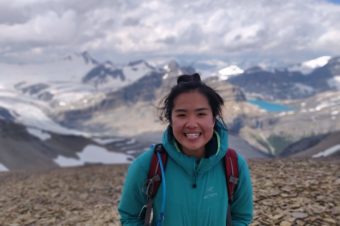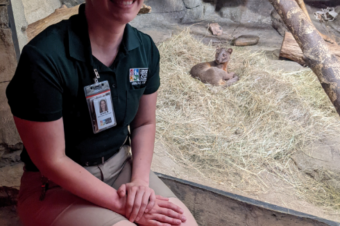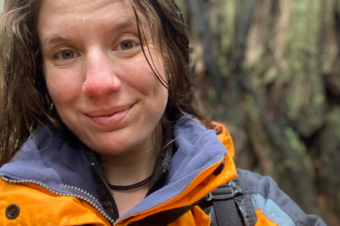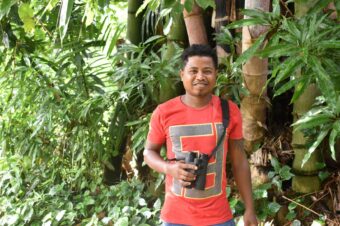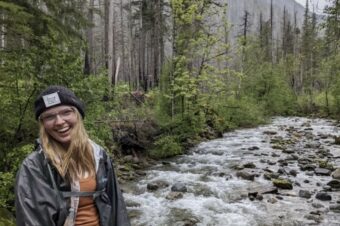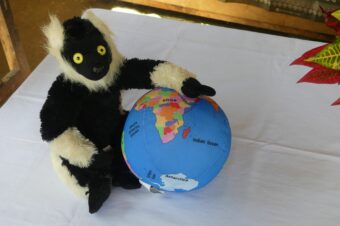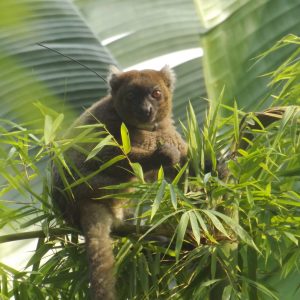
Sometimes weathering the storm is not good enough; learning to thrive despite the storm is necessary for many people living in Madagascar. As one of the world’s poorest nations, surmounting obstacles is a regular aspect of daily living. Covid-19 exacerbated the situation, but the underlying challenges have deep roots that long preceded the arrival of the global pandemic. After working with communities for more than 10 years, we have come to revere the steadfast commitment of some extraordinary people who continuously support their communities and champion local wildlife.
Razafy Andrianasolo is an assistant manager in a reforestation nursery near Kianjavato in southeast Madagascar. He has been active in protecting the forest on Vatovavy mountain since 1990, home of Critically Endangered greater bamboo lemurs, black-and-white ruffed lemurs and endangered aye-ayes. Razafy is the first person on site if a fire gets out of hand, mobilizing the community to action. He is now a community ranger with VOI Taratr’i Vatovavy, a volunteer-run organization of elected individuals that protects natural resources. Through a Rapid Action Grant (RAG) from IUCN Save Our Species that is co-funded by the European Union, regional authorities joined the VOI on patrols and outreach activities around Vatovavy. Their combined presence gave local people the strength to challenge an influential person from their own community who they say, as translated by our field partners, “has a power in the village and peoples are afraid to send complain about him”. The accompaniment of regional authorities on VOI patrols provided an avenue to halt, while mitigating the risk of retribution, an illegal logging operation that had an inventory of 282 pieces of lumber from native trees.
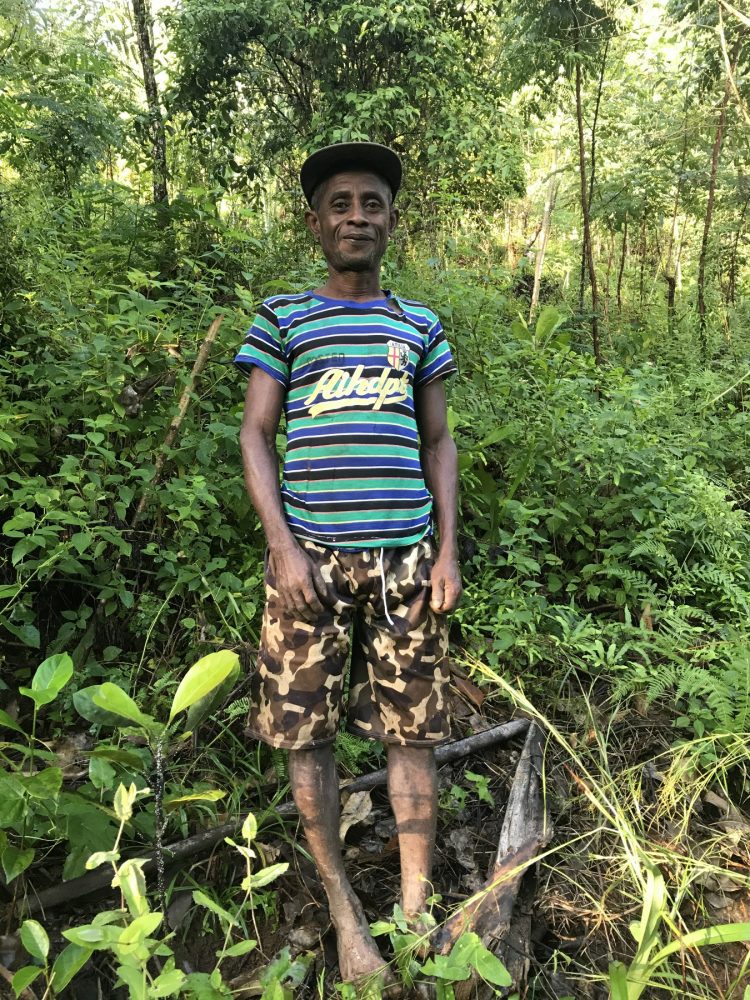
Many people who illegally exploit protected areas do not see alternatives to provide for themselves. Aubin Andry, a supervisor at our northern-most site at Montagne des Français National Park, also accompanied the VOI and authorities on RAG-supported patrols. On a single day in June, two trucks carrying a total of 360 sacks of charcoal were stopped leaving the park. The charcoal industry has an entire commodity chain, with the people who cut the trees at the bottom where they assume the greatest risk with the least payback. Aubin reported that one man traveled more than 1500 km from home to look for work in the city of Antisiranana, the country’s northern seaport, only to find himself illicitly entering the nearby national park to cut trees to produce charcoal.
Challenges of this nature were compounded by Covid-19. Around Kianjavato, many people earn their main income from selling products like bananas to collectors who distribute the items around the country; but since there were no trucks coming during the Covid-19 lockdown, they could not sell their produce. In addition to Covid-19, there was a drought. From December 2020 – March 2021, many children quit school because they did not have enough food to eat. Throughout this time, we were able to continue our reforestation efforts which not only expand lemur habitat but, through the use of RAG funds, provided reliable supplementary income to 325 people at three different sites who assist in the nurseries. Additionally, Conservation Fusion, our education partner, initiated four school gardens with RAG funds. To date, two of the gardens produced enough crops to sell despite severe insect damage. Mme. Aimée, a school director, said, “It is a learning process for the children and a way for them to transmit the message to parents. People are inspired to start when they see tangible result.”
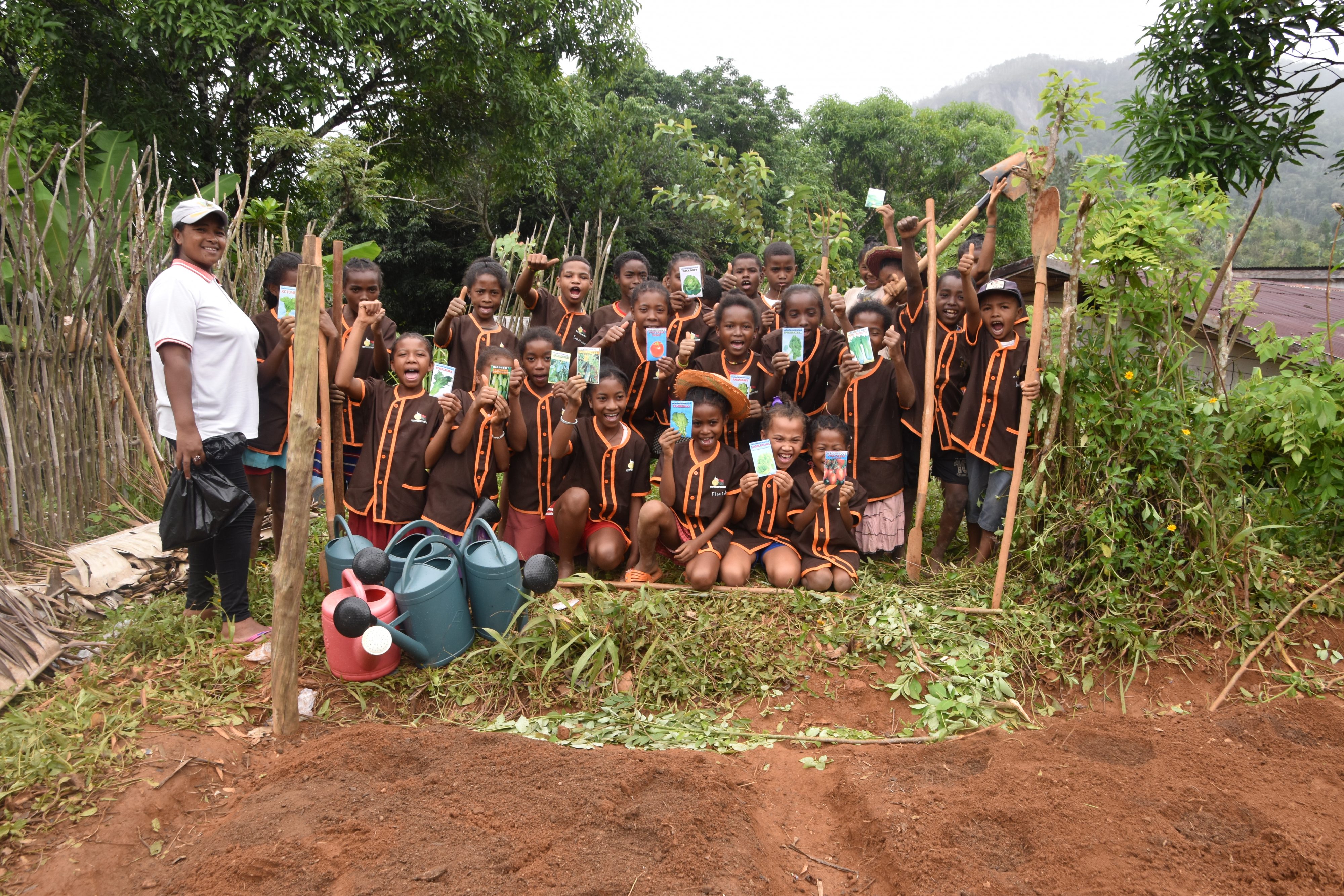
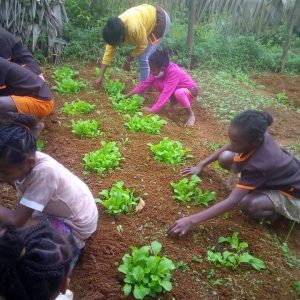
The school gardens and reforestation programs are just two components of our conservation approach, an approach that is only effective because of the long-term relationships that have developed with people such as Razafy and Mme. Aimée, who are persevering through Covid-19 as well as the many obstacles that came before.
This publication was produced with the financial support of the European Union through IUCN Save Our Species. Its contents are the sole responsibility of Omaha’s Henry Doorly Zoo and Aquarium and do not necessarily reflect the views of IUCN or the European Union.
